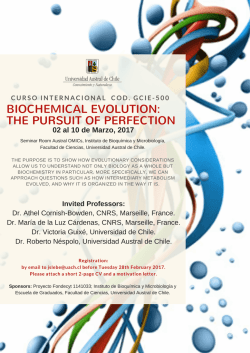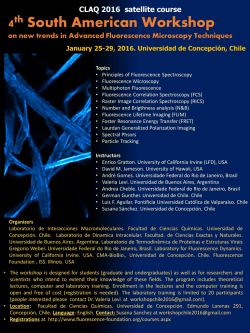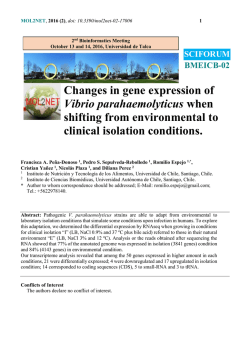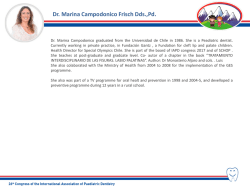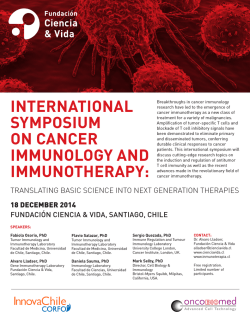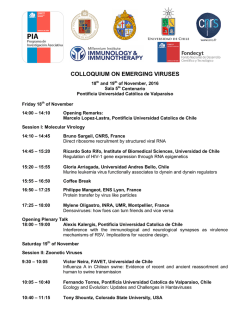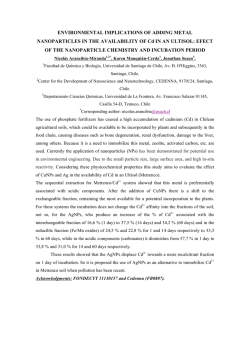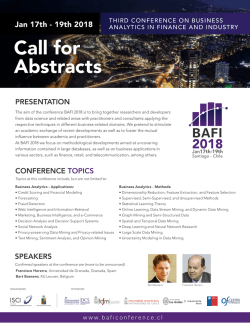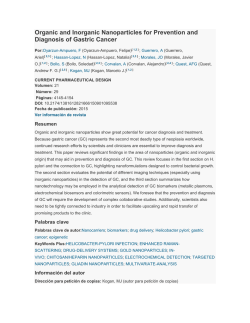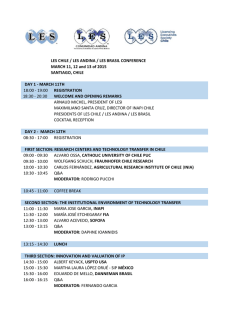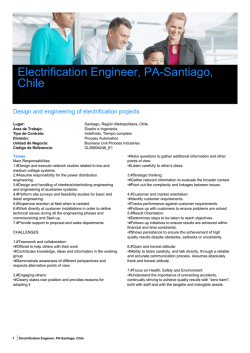
(Hupe) to Ocean Acidification - Centro de Investigación en
Estuaries and Coasts (2015) 38:590–598 DOI 10.1007/s12237-014-9845-y Intraspecific Variability in the Response of the Edible Mussel Mytilus chilensis (Hupe) to Ocean Acidification Cristian Duarte & Jorge M. Navarro & Karin Acuña & Rodrigo Torres & Patricio H. Manríquez & Marcos A. Lardies & Cristian A. Vargas & Nelson A. Lagos & Víctor Aguilera Received: 24 July 2013 / Revised: 28 May 2014 / Accepted: 1 June 2014 / Published online: 6 August 2014 # Coastal and Estuarine Research Federation 2014 Abstract Ocean acidification (OA) has been shown to affect significantly the net calcification process and growth rate of many marine calcifying organisms. Recent studies have shown that the responses of these organisms to OA can vary significantly among species. However, much less is known concerning the intraspecific variability in response to OA. In this study, we compared simultaneously the responses of two populations of the edible mussel Mytilus chilensis (Hupe) exposed to OA. Three nominal CO2 concentrations (380, 700, and 1,000 μatm of CO2) were used. Negative effects of CO2 increase on net calcification rate were only found in individuals from Huelmo Bay. However, no effects were found in individuals from Yaldad Bay. Moreover, OA had not significant effects on the shell dissolution rate in individuals from both localities. This suggests that the negative effect of the OA on the net calcification rate of this species is explained by shell deposition, but not by the shell dissolution processes. We do not know the specific underlying mechanisms responsible for these differences, but some possibilities are discussed. These results highlight that the responses of marine organism to OA can be highly variable even within the same species. Therefore, more studies across the distribution range of the species, considering environmental variability, are needed for a better understanding of the consequences of OA on marine organisms. Finally, because mussels exert influence on their physical and biological surroundings, the negative effects of a CO2 increase could have significant ecological consequences. Keywords Ocean acidification . Mussel . Calcification . Growth rate Communicated by Alberto Vieira Borges C. Duarte (*) Departamento de Ecología y Biodiversidad, Facultad de Ecología y Recursos Naturales, Universidad Andres Bello, Santiago, Chile e-mail: [email protected] C. Duarte : C. A. Vargas Center for the Study of Multiple-drivers on Marine Socio-Ecological System (MUSELS), Universidad de Concepción, Concepción, Chile J. M. Navarro : K. Acuña Instituto de Ciencias Marinas y Limnológicas, Facultad de Ciencias, Universidad Austral de Chile, Valdivia, Chile R. Torres Centro de Investigación en Ecosistemas de la Patagonia (CIEP), Coyhaique, Chile P. H. Manríquez Laboratorio de Ecología y Conducta de la Ontogenia Temprana (LECOT), Centro de Estudios Avanzados en Zonas Áridas (CEAZA), Avenida Ossandón 877, Coquimbo, Chile M. A. Lardies Facultad de Artes Liberales, Universidad Adolfo Ibáñez, Santiago, Chile C. A. Vargas Laboratorio de Funcionamiento de Ecosistemas Acuáticos (LAFE), Unidad de Sistemas Acuáticos, Centro de Ciencias Ambientales EULA Chile, Universidad de Concepción, Concepción, Chile N. A. Lagos Centro de Investigación e Innovación para el Cambio Climático (CIICC), Facultad de Ciencias, Universidad Santo Tomas, Ejército 146, Santiago, Chile V. Aguilera Instituto de Ciencias Naturales Alexander von Humboldt, Universidad de Antofagasta, 14 Av. Jaime Guzman, 02800( P.O. Box 170, Antofagasta, Chile
© Copyright 2026
